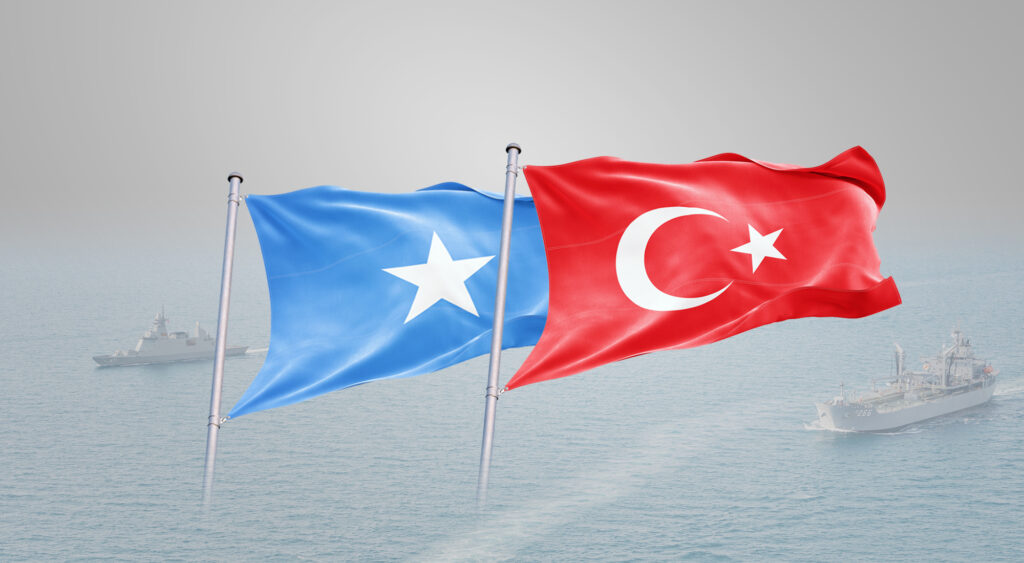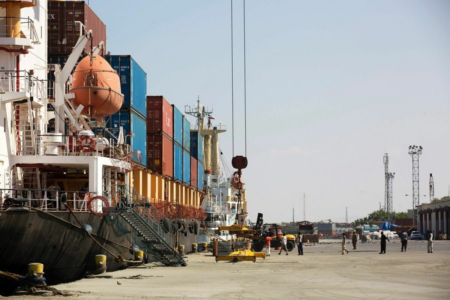The recent Somalia Türkiye maritime security agreement has stirred both optimism and controversy, igniting a heated debate across the Horn of Africa.
Signed earlier this year, the deal grants Türkiye significant authority in training, equipping, and helping to manage Somalia’s naval forces.
This move was hailed by some as a strategic step toward securing Somali waters, while others raise concerns about national sovereignty.
What Does Somalia Türkiye Maritime Deal Include?
Under the terms of Somalia Türkiye maritime deal, Türkiye will provide critical support in building Somalia’s naval capabilities, including:
- Training Somali naval officers
- Equipping the Somali Navy with modern technology
- Assisting in maritime surveillance and anti-piracy operations
- Investing in port infrastructure and blue economy initiatives
The agreement is expected to span 10 years, with a potential extension.
And it includes provisions that allow Türkiye a role in securing Somalia’s exclusive economic zone (EEZ) — a resource-rich maritime area long vulnerable to illegal fishing and smuggling.
Strategic Alliance with Regional Implications
Supporters of the deal argue that it enhances Somalia’s sovereignty by empowering its naval force to patrol its own coastline — one of the longest in Africa.
The partnership with Türkiye is seen as part of a broader geopolitical strategy that strengthens ties between the two nations.
As it is building on a decade of Turkish investments in Somali infrastructure, education, and humanitarian relief.
The Somali government insists the alliance is “in full respect of national sovereignty” and serves the country’s long-term interests.
“This deal marks a turning point for Somali security and economic independence,” said a spokesperson from the Ministry of Defense.
Somalia Türkiye Maritime Deal: Public Reaction and Sovereignty Concerns
However, critics warn that the agreement grants too much control to a foreign power.
Raising fears that Somalia could become overly reliant on Turkish military and economic interests.
Opposition figures and civil society leaders have questioned the transparency of the negotiations and called for parliamentary oversight.
“There is a fine line between assistance and interference,” said Fartun Ahmed, a political analyst in Mogadishu. “Somalia must ensure it retains full authority over its territorial waters.”
These concerns are compounded by rising regional tensions, particularly with Ethiopia.
Following its controversial port deal with Somaliland — a move Somalia strongly opposed.
Analysts suggest that Türkiye’s deepening military footprint in Somalia could shift the regional balance of power and strain relations with neighboring countries.
Security in the Horn of Africa: A High-Stakes Game
The Horn of Africa remains a hotspot for international rivalry.
With powers like the U.S., China, the UAE, and Türkiye all vying for influence in a region critical for global shipping and trade.
Somalia’s fragile security situation and unguarded coastline make it an attractive partner for external actors seeking strategic footholds.
While Türkiye deal may help Somalia combat maritime crimes and build a credible naval force, its long-term success depends on transparency, accountability, and strong governance.
What Comes Next after Somalia Türkiye Maritime Deal?
The Somali parliament is expected to debate the full terms of Somalia Türkiye maritime agreement in the coming months.
Regional observers will be watching closely as the deal is implemented — assessing whether it leads to increased security and sovereignty, or new forms of dependency and regional friction.








